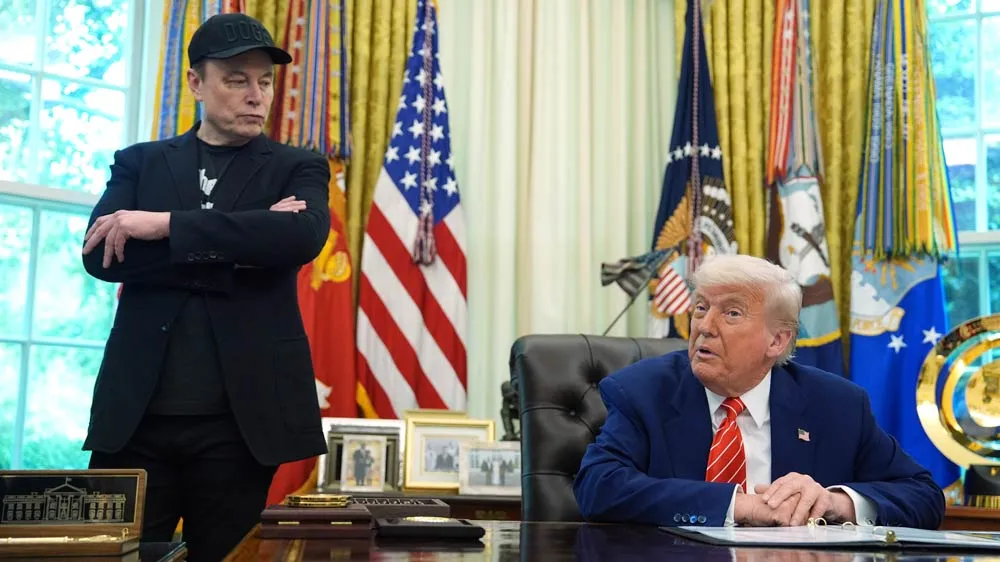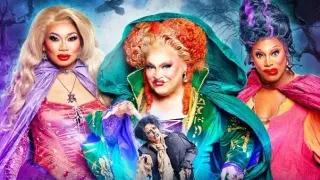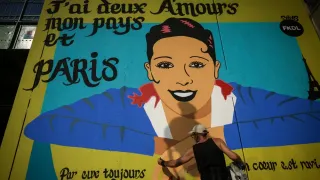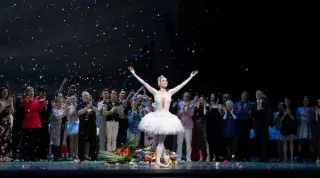August 20, 2021
Watch: 'Rainbow Six Siege' Latest Game to Feature Trans Character
READ TIME: 4 MIN.
LGBTQ+ representation in gaming has taken another step forward with the introduction of a transgender operator in Ubisoft's "Rainbow Siege Six" – the company's first trans character, Forbes notes.
The new character, Osa, is part of Crystal Guard, Forbes noted, before referencing a Gamespot report that shared how "Osa's in-game bio mentions that she 'found herself isolated [at the University of Zagreb] due to her unorthodox approach and others' attitudes towards her transition.'"
"Ubisoft then confirmed that this 'transition' is indeed confirming Osa to be transgender, saying 'the decision to create a transgender character was made early on, as part of our initiative to have an inclusive roster of Operators,'" Forbes went on to add.
"The consultants, all of whom are trans people, wanted to make sure that Osa was presented as authentically and organically as possible," Ubisoft stated. "She was written by a queer person and she is voiced by a trans woman – and while her identity is certainly influenced by her gender, who she is in the Siege universe is centered on her talents," Ubisoft added.
The addition of a transgender character helps round out the game's cast, which, Forbes noted, "already covers a wide range of sexualities, ethnicities and backgrounds – gender should simply be another part of that."
It's an addition with real-world meaning, as well. "Siege still has a massive player base that want to be represented in-game," Forbes pointed out.
Representation in gaming for marginalized people, including women and the LGBTQ+ community, is on the upswing, but the process has not always proceeded smoothly. As EDGE reported previously, some in the gaming community push back at efforts to broaden inclusivity among characters, falling back on tropes about an "agenda" being "pushed," with the implication being that such representation is a cynical, left-wing tactic to force people to accept their opinions rather than an attempt to expand the horizons of who gets to be on-screen.
"The 'pushing agenda' people are definitely a big reason devs get scared to put queer characters in their game," Els White, a writer and narrative designer at Spider Lily Studios, told EDGE. "Maybe I do have an agenda, huh!" White added. "It's to make lots of cool queer characters in my games! What's wrong with that?"
Some game developers still believe that most gamers only want to see heterosexual, cisgender characters, and expanding casts to include different gender identities and sexualities will make a game unmarketable.
"As soon as you're trying to be commercial," White noted, "there's a lot of pressure to appeal to a broader audience" in order to make a game profitable.
That has meant that the work of broadening representation has fallen in large part to smaller studios who can afford to market their games to a smaller, queer audience because their budgets won't be as astronomical as those of a major studio.
But what's becoming clear is that as queer indie studios have taken the lead in introducing diverse characters, the games in which those characters appear have succeeded, belying expectations that audiences might not embrace them.
A few examples: "Dream Daddy: A Dad Dating Simulator," a game about gay fathers with various body types and ethnicities dating each other, received rave reviews from some of gaming's most prominent publications.
"Undertale," which features trans, non-binary, lesbian and gay characters, has been a hit, as has "Celeste," a hugely popular game about climbing a mountain told through challenging platforming levels. "Celeste" was created by a team led by a non-binary creator, Maddy Thorson, who later stated that the lead character, Madeline, is trans.
And then there's "Spirit Swap," a joyously candy-colored match-3 game about queer, witchy friends living in a forest, which garnered twice its fundraising goal thanks to more than 2,000 fans.
The drive and creative energy around bringing LGTBQ+ representation to gaming come largely from the community itself, which is a major part of the gaming world – and, naturally, wants to see itself reflected in the stories being told.
"The majority of people I have met [in indie games] are queer POC who just want to see themselves in video games, so they did it themselves," Dani Lalonders, head developer on the queer dating game, "ValiDate," previously told EDGE.
That enthusiasm has been matched among gamers who have readily taken to new community-based platforms like OnlyShans.
Still, there's work to be done. One of the summer's most controversial moments in gaming came with the release of a photo by emerging Montreal-based studio Raccoon Logic. The image showed "20 mostly white male staffers" and was "part of the announcement" about the new studio, Axios reported, going on to note that "the photo elicited sharp reaction on Twitter, where women in the industry shared anecdotes of being a distinct minority in studios where they worked."
Raccoon Logic co-founder Alex Hutchins admitted he could "see why people reacted to the picture of the studio the way they did," but told Axios that not only does the team include a woman (who, he said, wasn't able to be there when the staff photo was taken), but also "diversity extends beyond gender, and I'm proud that we have LGBTQ members on our team."
Hutchins went on to add that "this is just Raccoon Logic's starting point, not the endgame."
Additional contribution by Kate Gray.







